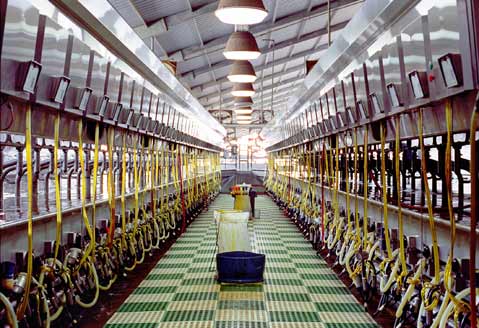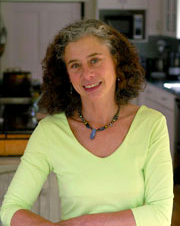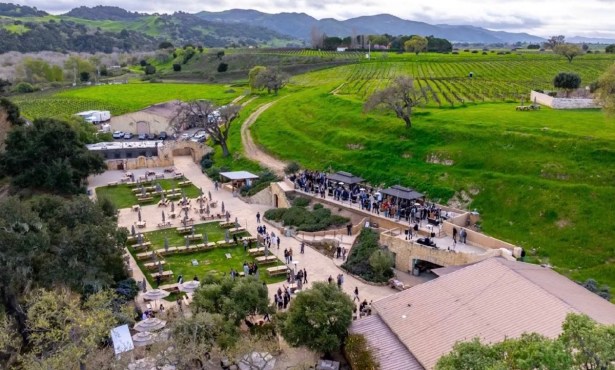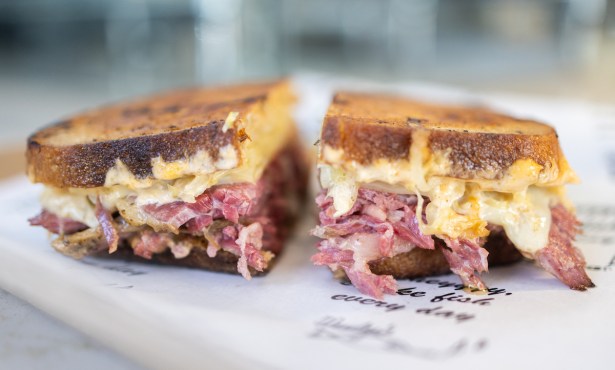Food’s Power for Change
Darra Goldstein's Keynote Address Opens UCSB Food Conference

Darra Goldstein – an acclaimed historian and the founding editor of Gastronomica: The Journal of Food and Culture – spoke to a packed room Thursday evening, February 5, as part of UCSB’s Food Sustainability and Food Security Conference. Her keynote address, which was directed to an eclectic group of foodies, environmentalists, humanities professors, and students, revolved around the socio-political connotations of cuisine and how food can hold the power to both unify and separate dissimilar cultures. She asked the audience to think about how eating identifies nationality and society and to consider the central question of her talk: “Can food be a force of social change?”
With this query as the backdrop for the rest of her address, Goldstein went on to speak about the Israel-Palestine conflict and the subtle yet real ways food has contributed to the ongoing tension within the troubled region. She highlighted Israeli’s use of agriculture as a means of warfare; the country continuously turns a blind eye to the uprooting of Palestine’s olive trees along the territory’s borders. This willful act of sabotage, Goldstein explained, harms not only Palestine’s olive production economy but also undermines its sense of national pride since olives are a staple food and ingredient within the territory.

Goldstein also spoke at length on the Middle-Eastern issue of hummus; Lebanon has recently sued Israel to stop it from marketing hummus and other regional dishes (such as feta cheese, falafel, and tabbouleh) as its own because Lebanon claims these are strictly and traditionally Arab foods. Goldstein articulated her viewpoint on this issue by stating, “Rather than claiming ownership, both sides should see dishes in common and mutual source of nourishment.”
Such were the examples (plus many others) that Goldstein presented in which ways food, although seemingly inconsequential in the realm of global politics, can actually act as a significant barrier between countries and governments. The tone turned hopeful, however, when Goldstein shifted gears and began to describe how cooking can also act as a bridge between different groups of people. “Food can work for social integration and reconciliation,” she asserted. She spoke on the ongoing efforts of many Israeli and Palestinian women who exchange recipes and ingredients in hopes of integrating the contrasting culinary elements of their conflicting cultures. These micro-level projects carry the potential of turning into macro-level shifts in social understanding and acceptance. “Food can act as a catalyst for meaningful conversation and change,” Goldstein said.
Although interesting and compelling, this discussion of food in the context of Middle Eastern social and political milieus seemed, at first, to lack relevance in a Southern California university setting. But when asked why a dispute over hummus in Israel should matter to a group of Santa Barbarians, Goldstein put her presentation in perspective. “We hear over and over that it’s better to buy locally in order to support local farmers and distributors and to do our part in the encouragement of environmentally friendly food production,” she said. “But I think it’s also important to think about food on a social and global scale, and to encourage meaningful discussion and contemplation. ‘Knowledge is power’ is a cliche, but it’s actually true.”
The conference is nearing its conclusion, but there are still lectures to be heard and discussions to take part in: on Saturday, February 7, there will be a session on “Climate Change and Food Security Monitoring,” as well as a closing discussion titled “Some Futures for Food Studies.” Both events are located in UCSB’s Interdisciplinary Humanities Center. For more information, visit this website.



